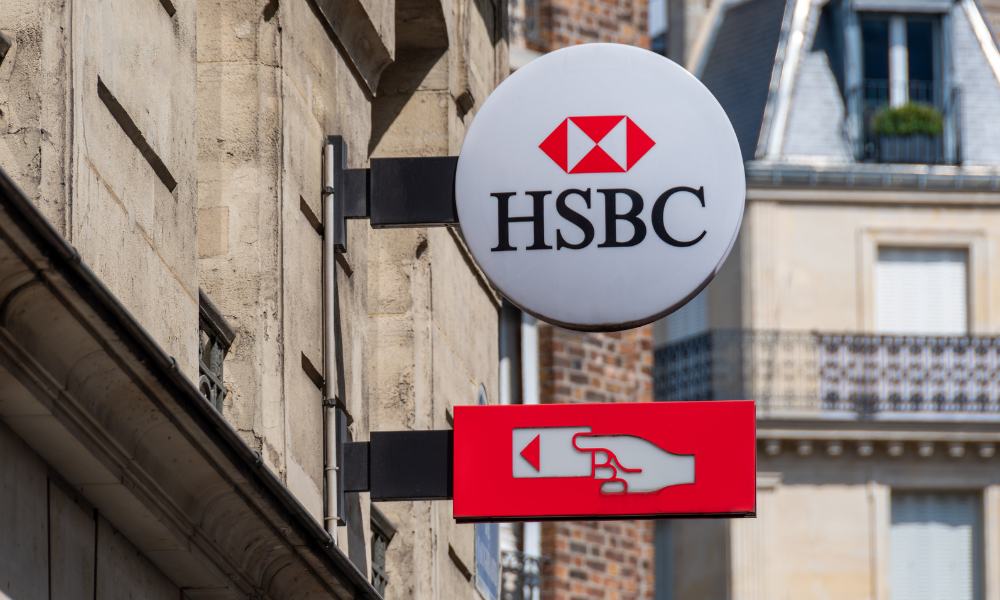New tracking tools to help cut down on absence from the workplace

HSBC has decided to get tougher on work-from-home and has told employees at its UK retail division who fail to comply with its hybrid working guidelines could result in reduced bonus payments - a move that places the banking giant among a growing list of financial institutions demanding a firmer return to office life.
According to reports from both Bloomberg and the FT, the London-based lender is equipping its line managers with enhanced attendance tracking tools, which will enable closer oversight of whether staff are meeting the bank’s longstanding requirement: spending at least 60 per cent of their working week - roughly three days -in the office or engaged in face-to-face client meetings. Falling short of this threshold may now carry financial repercussions, particularly at bonus time.
The shift, first reported by Bloomberg, underscores a broader trend across the banking and professional services sectors, as employers reevaluate the pandemic-era embrace of remote work.
HSBC’s updated enforcement measures apply to all staff with office-based contracts across its UK retail and commercial banking arms, which together employ around 23,000 people. While HSBC declined to comment publicly, the internal communication is understood to reiterate expectations set more than a year ago, when the 60 per cent office attendance rule was introduced. At the time, the policy was framed as a flexible arrangement designed to balance productivity with personal circumstances. However, the latest development ties those expectations more directly to compensation outcomes.
The announcement follows similar efforts at Lloyds Banking Group, which in January stated that its senior managers would be assessed partly on office attendance when determining annual bonuses. Although Lloyds’ policy targets a narrower subset of its workforce—around 20 percent—the move reflects the same institutional shift: from encouragement to enforcement.
Read more: Lloyds gets tough on work from home
A wave of similar enforcements has swept through the financial sector on both sides of the Atlantic. JPMorgan Chase, under chief executive Jamie Dimon, has gone so far as to require five-day in-office attendance for certain roles, while Citigroup shuttered its experimental beachside office in Málaga, once hailed as a model of work-life balance for junior bankers. Barclays has also reined in remote work allowances in recent months.
Even regulators are drawing lines in the sand. The U.S. Securities and Exchange Commission recently instructed employees to resume full-time, in-person work—an indication that the tide has turned decisively toward office-centric models of professional life. HSBC’s policy tightening comes at a time of logistical strain for the bank. As it prepares to relocate its London headquarters from Canary Wharf to a smaller site near St Paul’s, concerns have mounted over a significant shortfall in available desk space. Sources familiar with the move suggest the new headquarters could be short by as many as 7,700 desks, a figure far higher than early internal estimates. Despite densification efforts, the site may not comfortably accommodate the bank’s full London-based workforce under current workplace density standards.
Read more: Does HSBC have enough desks?
Meanwhile, other major employers - including PwC and EY - have also adopted more rigorous tracking of office attendance. PwC last year began monitoring staff presence using the same systems it uses to measure billable hours, signalling a cultural shift among firms that once championed flexibility. Still, the policies have not gone unchallenged. At rival institutions such as Starling Bank and creative conglomerate WPP, new attendance mandates have met resistance, with staff expressing concerns over work-life balance and personal autonomy.
As HSBC grapples with space constraints, shifting expectations, and employee sentiment, its revised approach to hybrid working offers a telling portrait of an industry recalibrating in the aftermath of the COVID-19 pandemic. With employee presence now a lever for reward - and potentially, for penalty - the message is clear: the days of informal remote work arrangements are giving way to a more formalised, monitored, and office-oriented model of employment.



